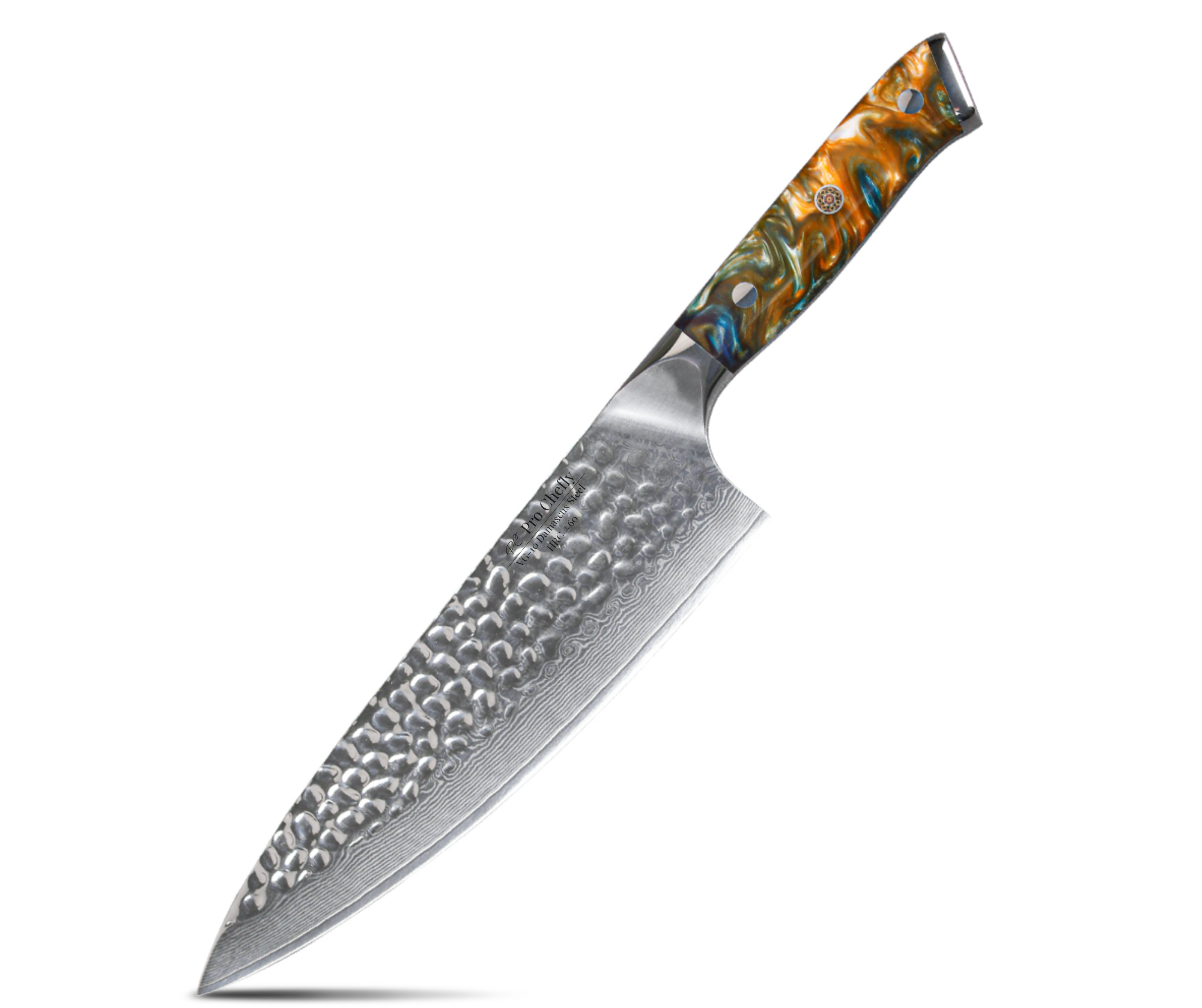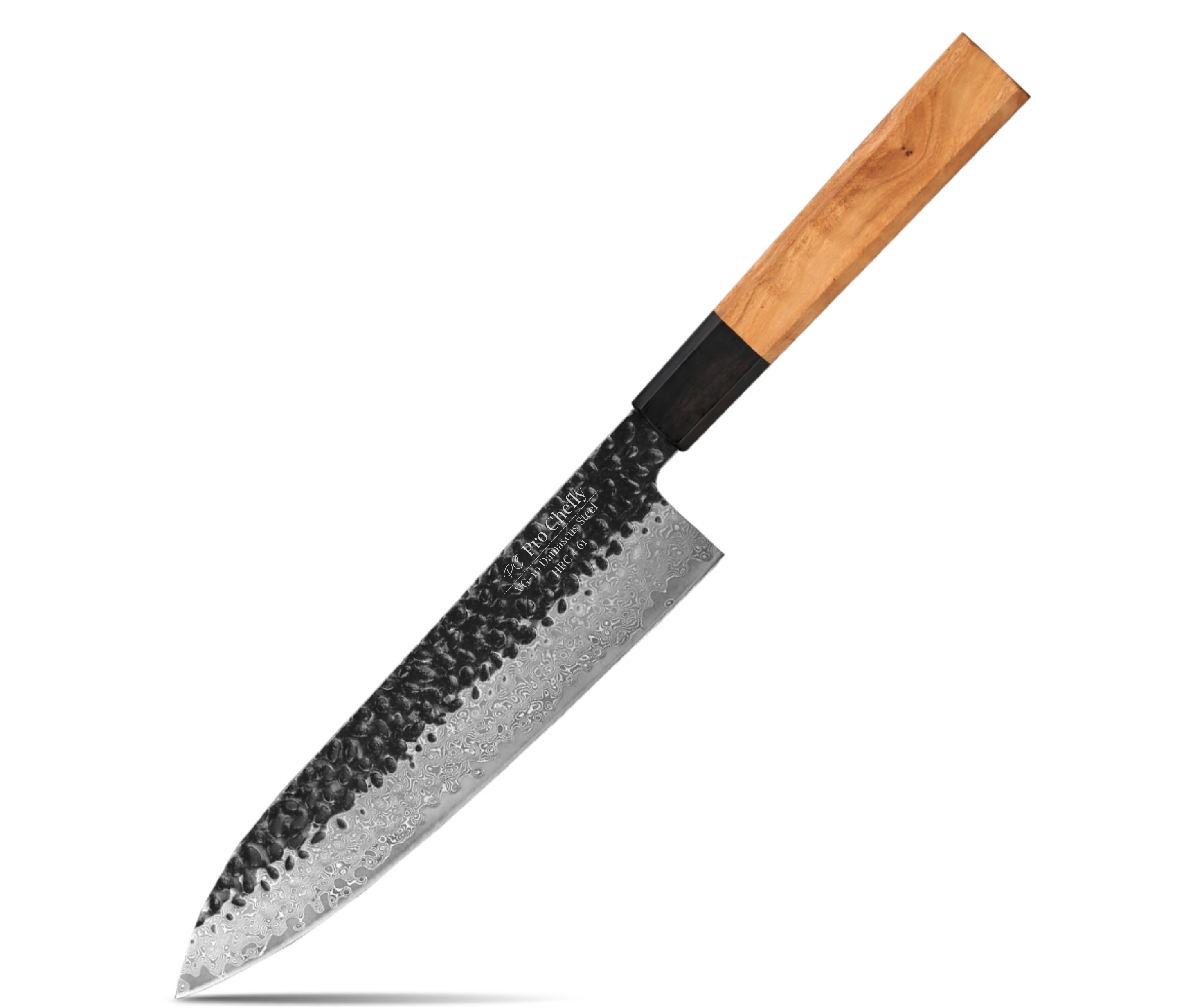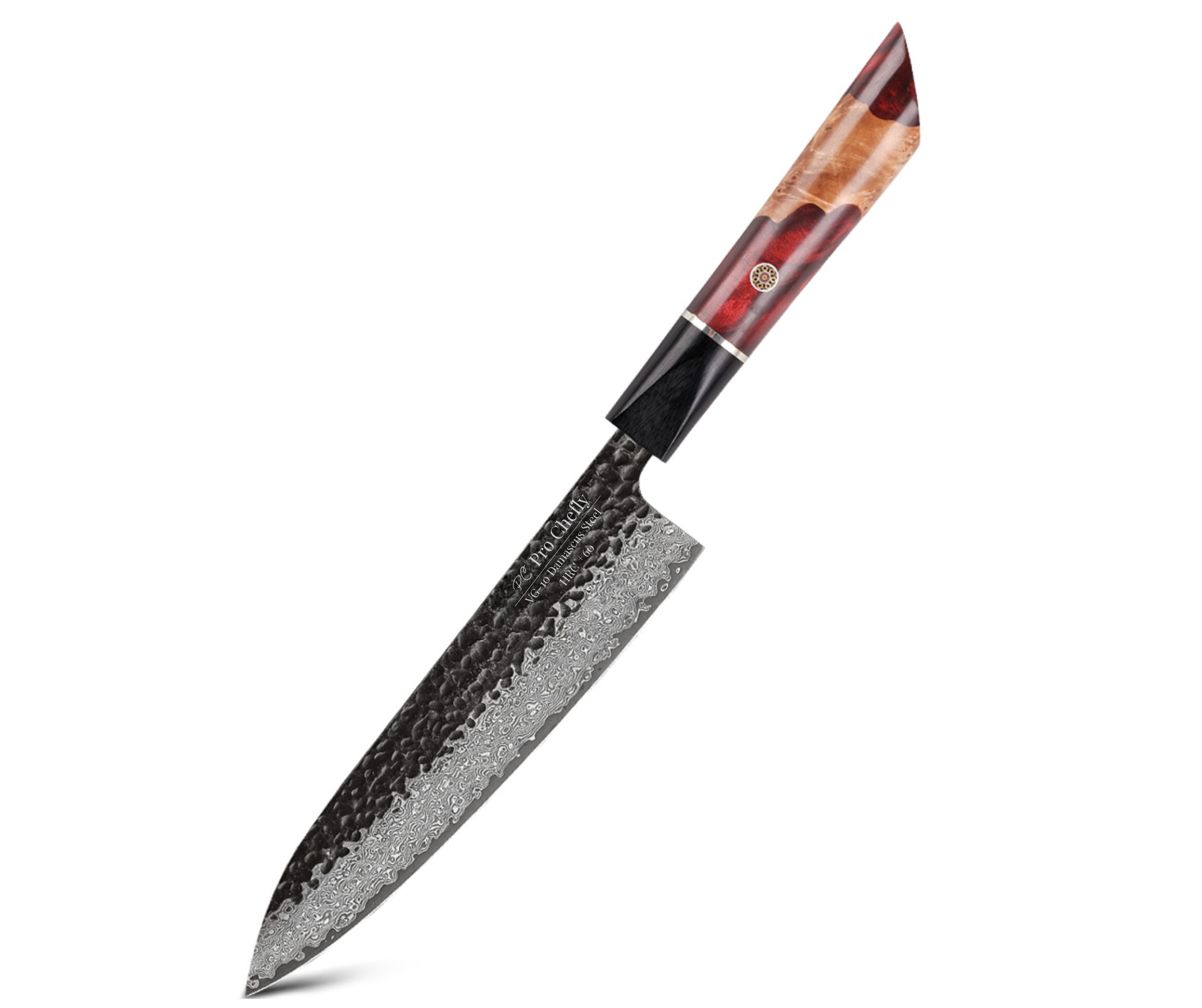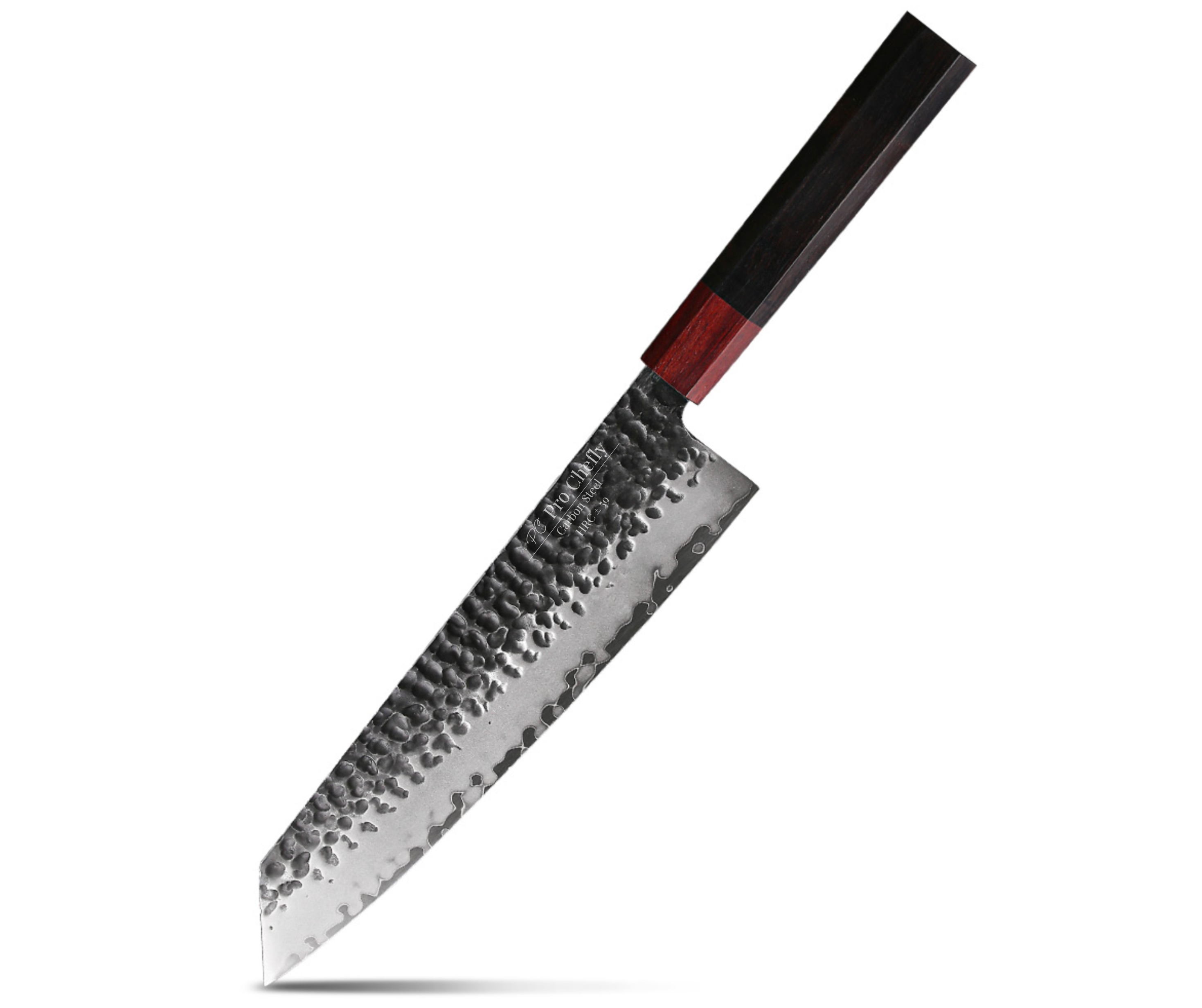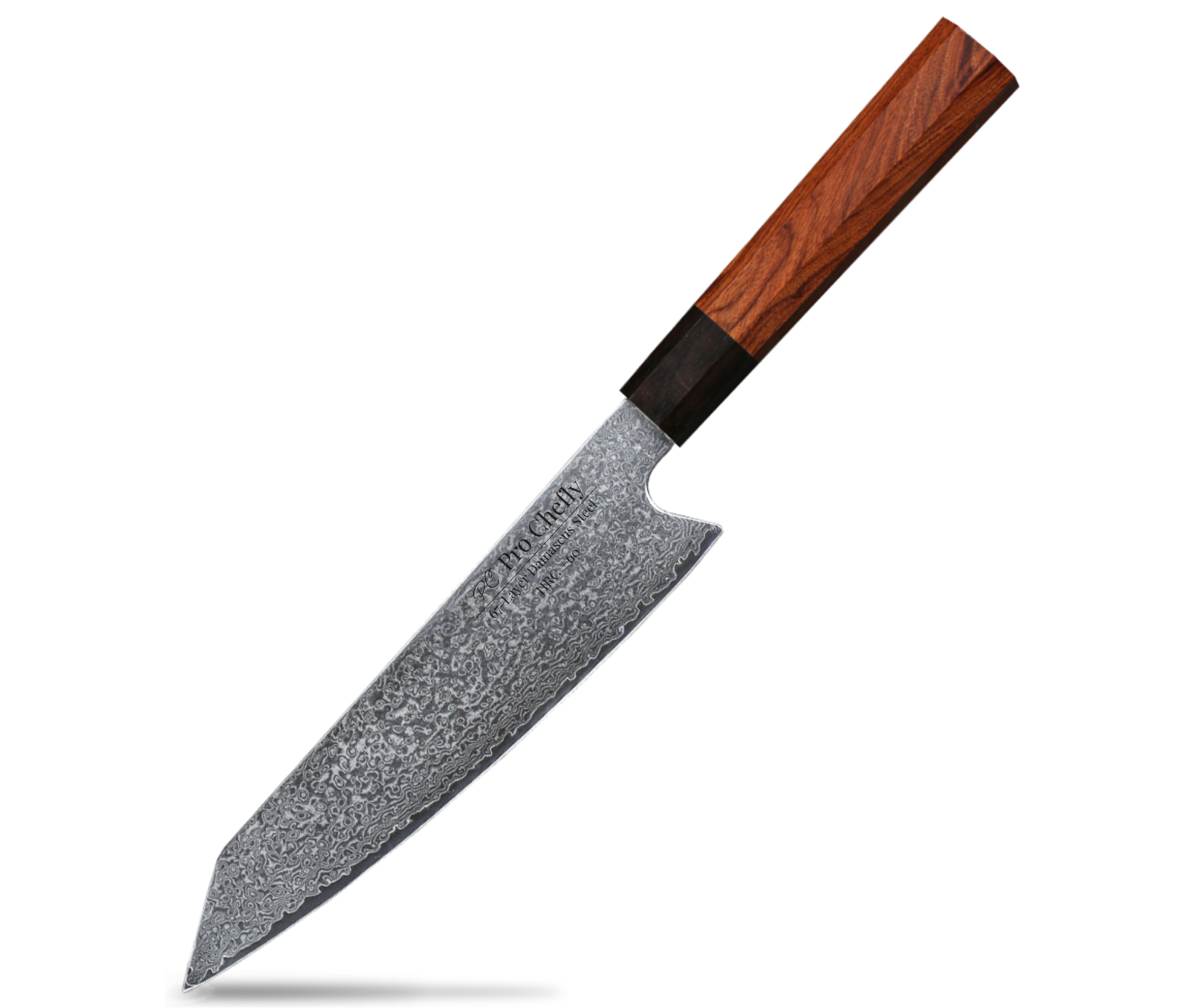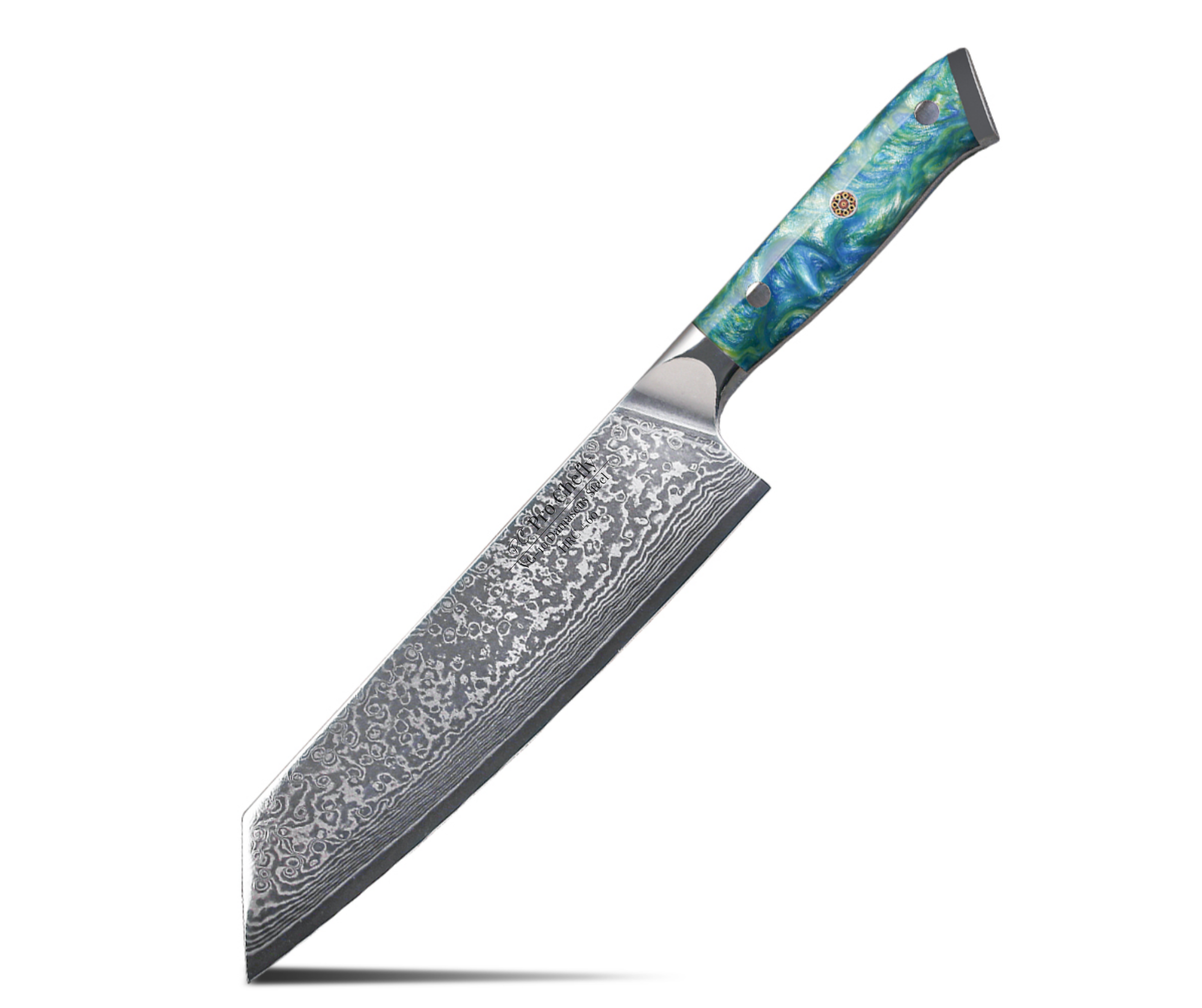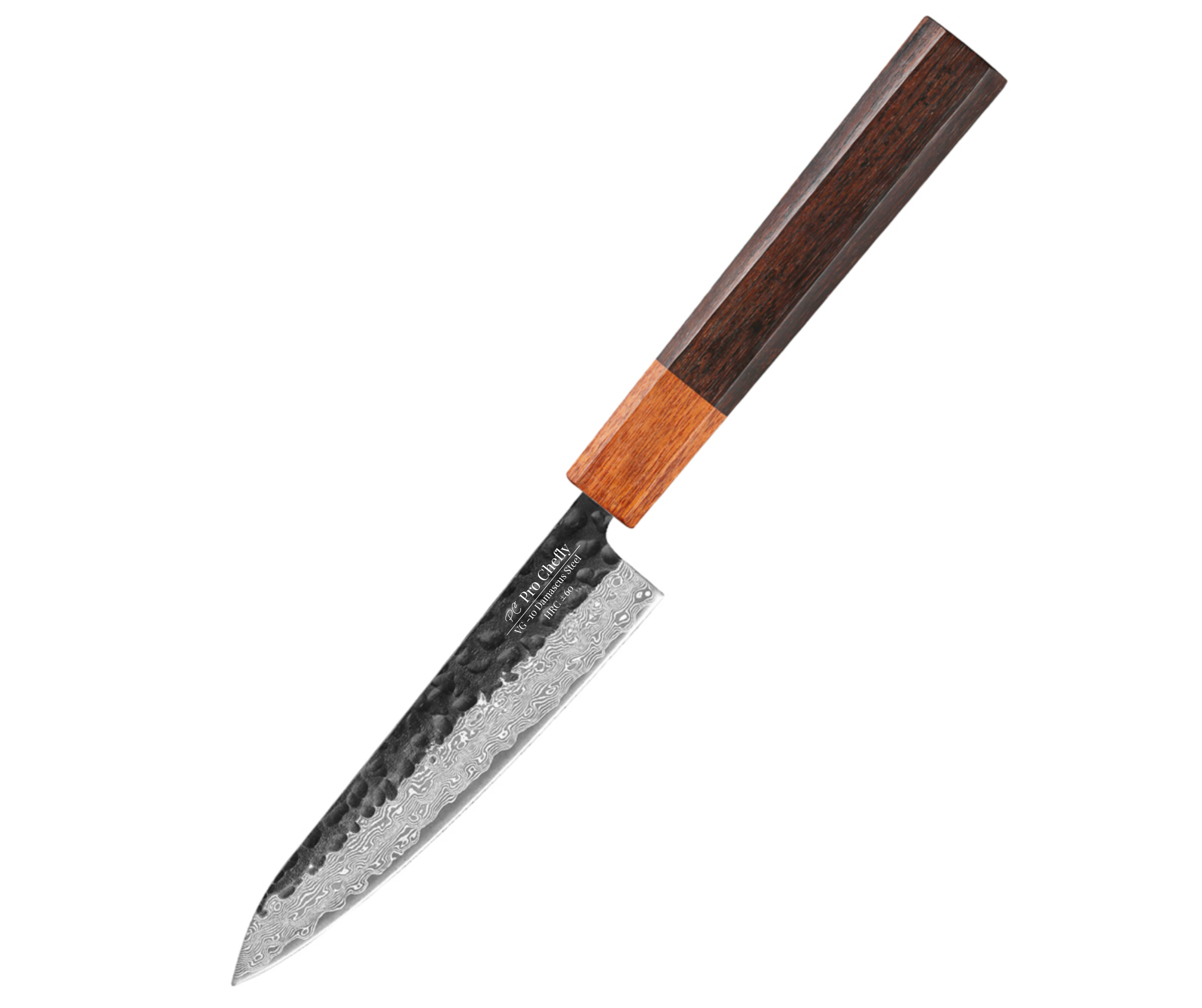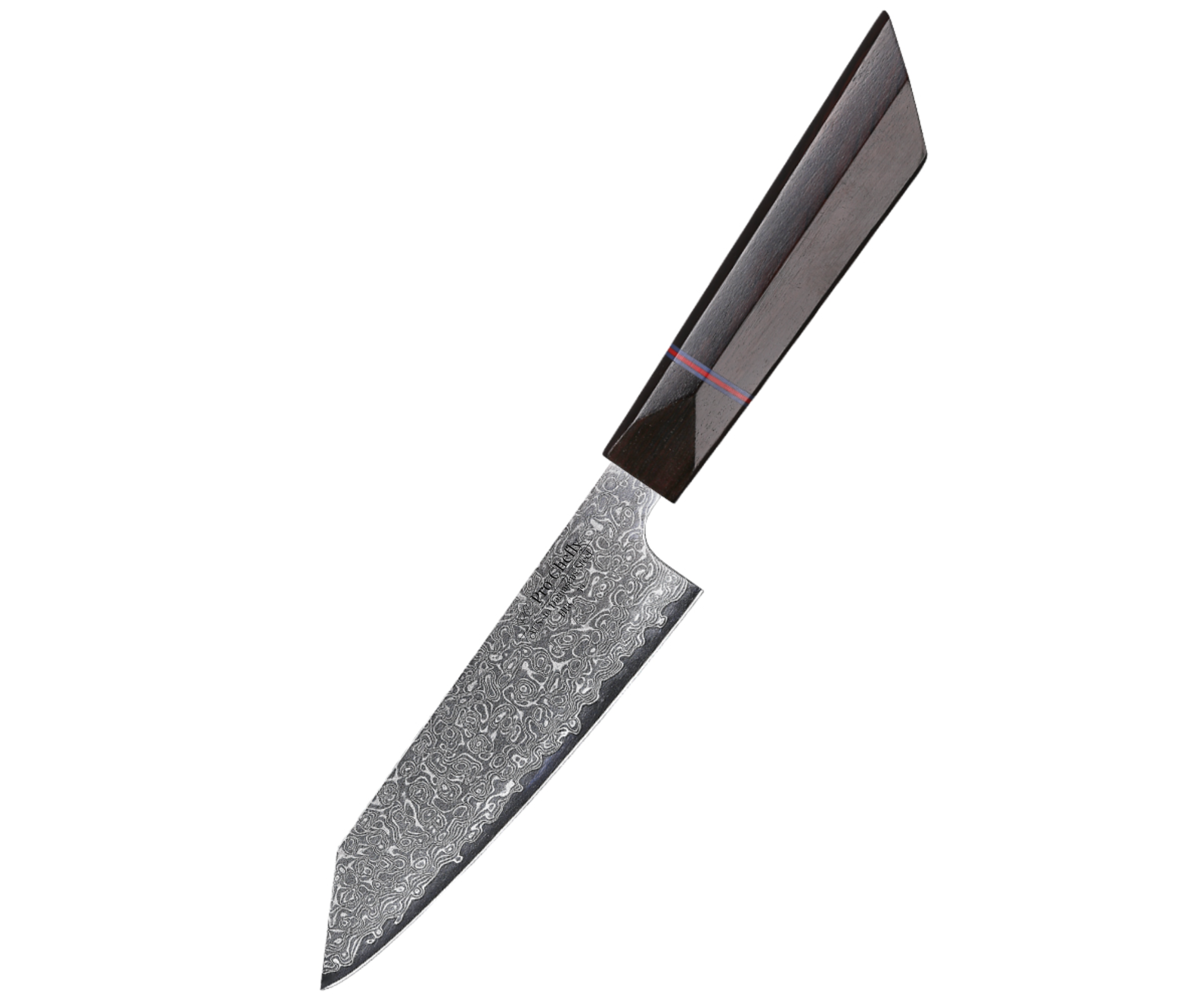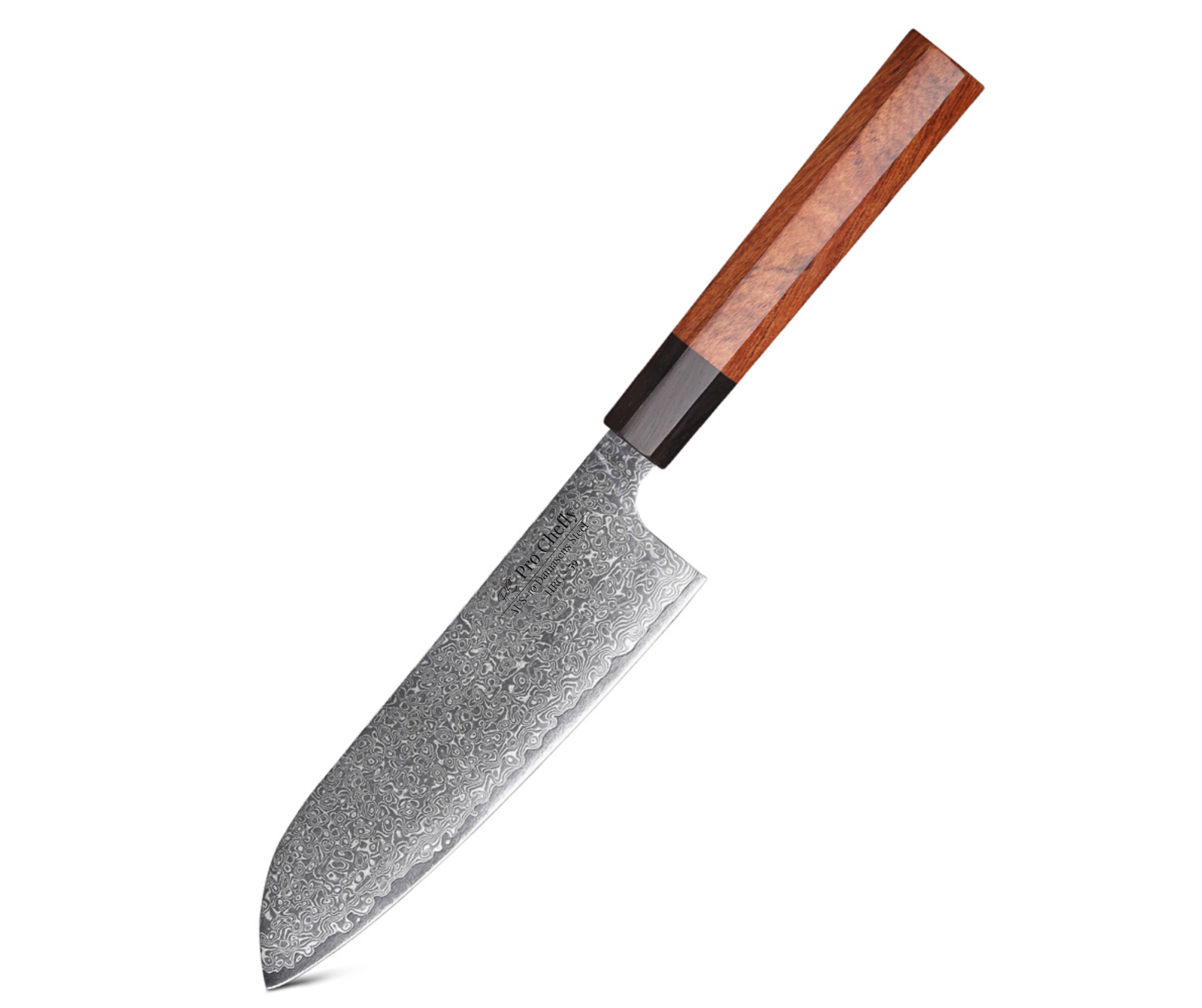Chef’s Overview
Dear Chefs, let’s sharpen our focus on a question I hear all the time: “Is Damascus steel actually stronger than other kitchen knife steels?” It’s a fair question, because Damascus carries an almost mythical reputation in the culinary world. Today, we’ll cut through the hype and compare Damascus to other common steels so you’ll know exactly what makes it unique—and whether it’s truly the strongest steel for your kitchen.

Damascus Steel Knives: History, Reputation, and Reality
Damascus steel’s legend began centuries ago, with blades said to cut through anything in their path. Those swords carried an aura of invincibility—and that story lingers today. In modern kitchens, Damascus knives are prized not only for their swirling, rippled beauty but for their balanced performance. But here’s the truth: Damascus isn’t a single steel. It’s a process of layering hard and soft steels together, forging durability, flexibility, and artistry into one blade. That’s why, as I shared in How is Damascus Steel Forged and Why is it So Valuable, every pattern is unique—no two knives look the same.
Comparing Damascus Steel to Stainless and High-Carbon Knives
When chefs debate strength, they usually compare Damascus to stainless or high-carbon steels. Stainless steel is reliable, easy to maintain, and rust-resistant—but it dulls quickly, meaning you’ll spend more time sharpening. High-carbon steel takes an edge beautifully and keeps it—but it rusts and chips if you don’t give it constant care.
Damascus with VG-10 or AUS-10 Cores: The Sweet Spot
This is where Damascus stands apart. A VG-10 Damascus Chef Knife or 7" AUS-10 Damascus Santoku Knife bridges the gap: the sharpness and edge retention of high-carbon, paired with the stain resistance and resilience of stainless. As I explained in How Does VG-10 Compare to AUS-10 and Other Premium Steels, these steels are at the heart of why Damascus belongs in serious kitchens.
Does Damascus Steel Really Make a Stronger Knife?
Strength in knives isn’t just hardness—it’s about real performance. A pure high-carbon knife may cut like lightning but can chip at the wrong angle. Stainless may endure, but it dulls too fast. Damascus? It’s like a rope woven from many strands—layer after layer creates resilience and longevity. That’s why Damascus holds an edge longer than stainless and resists chipping better than brittle carbon steel.
Performance in Everyday Cooking
Imagine dicing onions with the 5" VG-10 Damascus Petty Knife or slicing through ribeye with the 8.5" VG-10 Damascus Kiritsuke Knife. These blades don’t just survive the job—they elevate it. They carry the strength of tradition and the performance of modern steel science, giving you confidence every time you step to the cutting board. For more on how strength translates into precision, revisit Why Chefs Choose Damascus Steel Knives for Precision.
Why Damascus Steel Belongs in Your Kitchen Arsenal
Think of steel like vehicles: stainless is the workhorse, carbon is the sports car, but Damascus? It’s the luxury performance SUV—sharp, durable, reliable, and undeniably beautiful. While no steel is perfect for every job, Damascus delivers the best of all worlds. The joy of using it isn’t just in the cut—it’s in the feel, the history, and the artistry at your fingertips. If you’re just starting your journey, How to Choose the Right Chef Knife for Beginners is a perfect companion to this conversation.
So, Dear Chefs, next time you reach for a blade, remember: Damascus isn’t just about strength. It’s about balance, resilience, and the feeling of holding a piece of culinary tradition—refined for your kitchen today.
Knife Collections
Shop the latest in Pro Chefly Damascus Knives
Chef's Notes
Stay up to date with the latest kitchen stories and recipes

- December 05, 2025
Dear Chefs, the holidays deserve a dish that feels slow, soulful, and unforgettable — and few things capture that spirit...

- November 30, 2025
Dear Chefs, there is something unmistakably comforting about bread pudding in November — the way the custard soaks into the...

- November 25, 2025
Dear Chefs, there is something special about roasted carrots in the fall — the way they caramelize, the way their...

- November 20, 2025
Dear Chefs, there is something magical about fall stuffing, especially when pumpkin and sage join the party. The aroma alone...

- November 15, 2025
Dear Chefs, November has a rhythm of its own — a slower pace, a softer light, and a craving for...

- October 31, 2025
Dear Chefs, fall baking is a ritual — the scent of cinnamon in the air, pecans roasting low and slow,...
- Choosing a selection results in a full page refresh.
- Opens in a new window.
